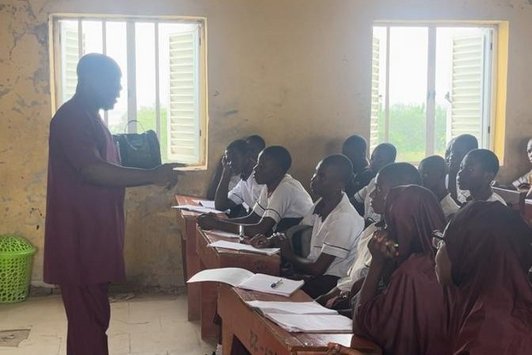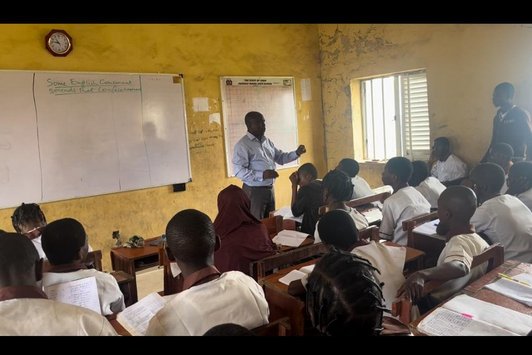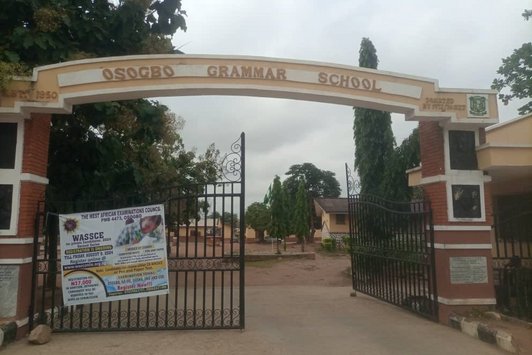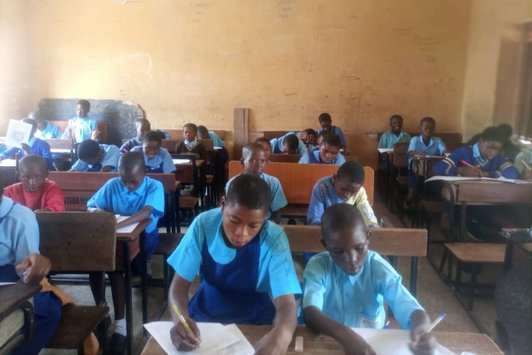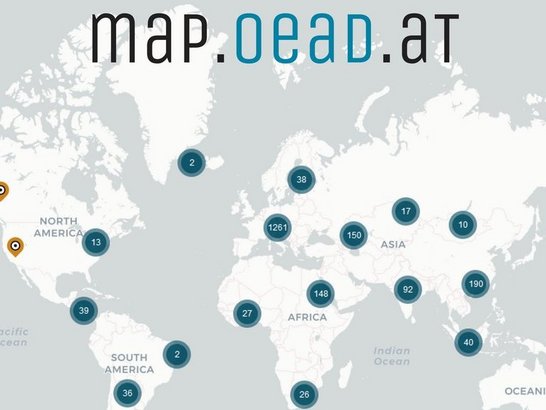
Project completed: P068_Nigeria_Ethiopia

Quality Education for all: Designing and Implementing Digitized English Language Learning System for Secondary School Education in Africa
Cooperating countries: Ethiopia, Nigeria and Austria
Coordinating institution: Redeemer’s University, Professor Adebola Adebileje, adebilejea@run.edu.ng
Partner institution: Debre Markos University, University of Innsbruck
Project duration: 1 May 2022 - 30 April 2024
Budget: EUR 29.430
Abstract:
The main objective of this project is to develop a strong network among 3 universities involving `the faculties of education/humanities in Redeemer’s University in Nigeria; Debre Markos University in Ethiopia and University of Innsbruck, in Austria. It specifically aims to produce specialized digitized teaching/learning System/App for teaching English at the senior secondary level and to promote advising/consulting roles among the collaborating institutions. Hence, the three institutions will be jointly designing and implementing a task-based digitizedlanguage teaching/learning system for English at the senior secondary school level in Africa to support students in challenging times (covid-19) and to facilitate language learning for all students (regardless of e.g.disability, gender, race, religion, social and economic status). This strongly aligns with three of the SDGs: SDG 4, SDG 5 and SDG 8.
To achieve this, a 3 member research team will be set, one from each of the collaborating institutions. Criteria for team membership selection are based on expertise in Task-based language learning/teaching concept, Software development, e-learning, Curriculum Design and Development, English as a Second Language, and English as a Foreign Language. To achieve this goal of the project, the team members will engage in assessing and identify gaps in the teaching methodology of the English language of partner institutions at the senior secondary school level. Similarly, in line with the revised teaching methodology, task-based teaching/learning modules will be infused where appropriate, with a digitized learning system that will be designed. Digitalization will include live coverage of physical classroom teachings by near-native speakers of English as well as recorded clips.It is expected that the project will contribute immensely to online teaching at the senior secondary school level and provide seamless access to quality education of many learners in Africa, especially during pandemics.
Summary:
The Project (PO68_Nigeria_Ethiopia) entitled Quality Education for all: Designing and Implementing Digitized English Language Learning System for Secondary School Education in Africa produced a specialized digitized teaching/learning System for teaching English in secondary school in Africa. The study is a collaboration of three universities: University of Innsbruck, Austria; Debre Markos University, Ethiopia and Redeemer’s University, Nigeria and it aligns with three of the SDGs: SDG 4 – Quality education; 5 – Gender equality; and 8 – Decent work and Economic growth. The rate of failure in English is high among secondary school students and its graduates are not as proficient enough to get low-income jobs after school. Thus, the project did a preliminary assessment of the existing senior secondary school (and alternative levels in Austria) English curricular in Nigeria, Ethiopia and Austria. Results from this preliminary assessment showed that the curricular contained structured lessons of listening, reading, writing and speaking, grammar, and vocabulary, but little of communicative activities. Consequently, a blended curriculum was designed where selected task supported activities were incorporated into the existing curriculum to enhance students’ communicative skills. The blended curriculum formed the basis for the digitized learning system’s design. The design followed the 6-stage process of planning, analysis and quick design, building the prototypes (create-demonstrate-feedback), system testing, deployment and evaluation. The learning system is user friendly and has capacity for both asynchronous e-learning, which is self-paced and facilitator/instructor-led, synchronous learning. It is principally a real time face-to-face type of learning and expected to guide against complete lock down of teaching and learning during challenging times of pandemics. The task-based language learning (TBLL) model which allows for project work and communicative and real-life activities served as the methodological framework for the study. A pretest-posttest quasi-experimental group design was adopted involving randomly selected 60 senior secondary school students (SSS3) from two purposively selected public schools (Fakunle Comprehensive High School and Osogbo Grammar School) in Osogbo as group A (experimental) and group B (control) respectively. Data was collected for the study through the following research instruments: administration of a standardized English multiple-choice-question (MCQ) test covering four aspects such as grammar, vocabular, spoken and written English which serves as the pretest and posttest; the digitized learning system developed from the blended English curriculum; the traditional learning method; and a self-inventory motivation questionnaire. These instruments were tested through a pilot study carried out at Redeemer’s University Staff school and necessary amendments were made to validate and establish the reliability of the instruments. Results revealed the experimental group performed slightly better than the control group in grammar and written English. However, the differences were not substantial, and there was no significant change in communicative skills. A Chi-Square test was conducted to examine the relationship between the participants' gender and their internet experience. The results were statistically significant, as it established a relationship between the variables. It is recommended that students should be provided with appropriate devices to get themselves acquainted with the language learning system at their own pace
